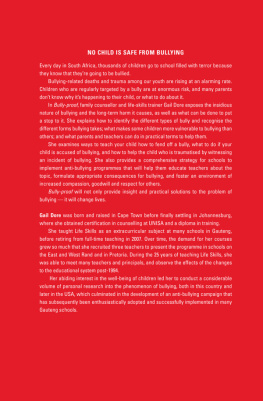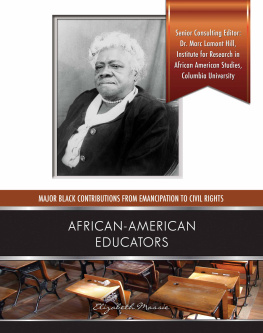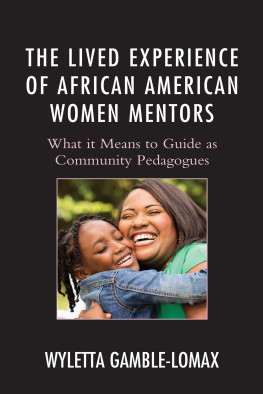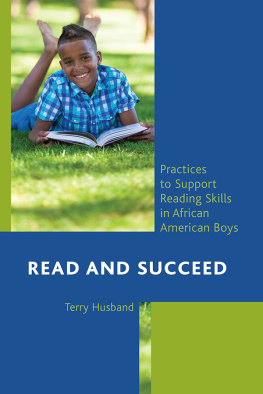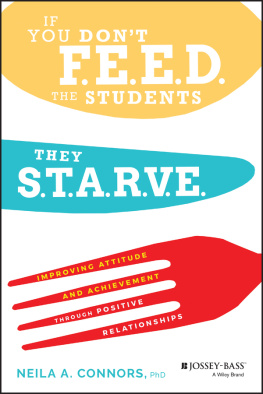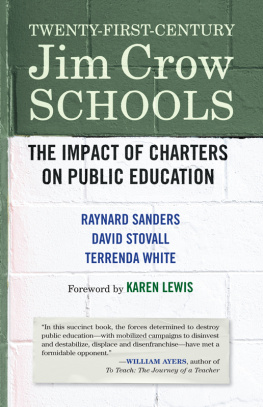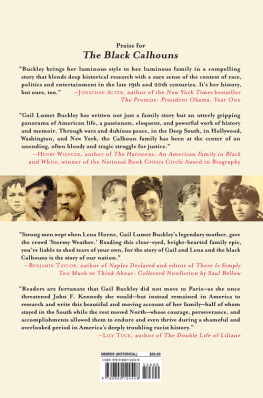Gail L. Thompson - The Power Of One: How You Can Help Or Harm African American Students
Here you can read online Gail L. Thompson - The Power Of One: How You Can Help Or Harm African American Students full text of the book (entire story) in english for free. Download pdf and epub, get meaning, cover and reviews about this ebook. year: 2009, publisher: SAGE Publications, genre: Religion. Description of the work, (preface) as well as reviews are available. Best literature library LitArk.com created for fans of good reading and offers a wide selection of genres:
Romance novel
Science fiction
Adventure
Detective
Science
History
Home and family
Prose
Art
Politics
Computer
Non-fiction
Religion
Business
Children
Humor
Choose a favorite category and find really read worthwhile books. Enjoy immersion in the world of imagination, feel the emotions of the characters or learn something new for yourself, make an fascinating discovery.

- Book:The Power Of One: How You Can Help Or Harm African American Students
- Author:
- Publisher:SAGE Publications
- Genre:
- Year:2009
- Rating:4 / 5
- Favourites:Add to favourites
- Your mark:
The Power Of One: How You Can Help Or Harm African American Students: summary, description and annotation
We offer to read an annotation, description, summary or preface (depends on what the author of the book "The Power Of One: How You Can Help Or Harm African American Students" wrote himself). If you haven't found the necessary information about the book — write in the comments, we will try to find it.
This is the book I have been waiting fora workbook filled with stories, data, and the latest research. In clear, beautifully written prose, Gail Thompson asks us to examine our own preconceptions and perceptions. By completing the exercises and keeping a journal, we can discover our strengths and our challenges. We are encouraged to make real changes in the way we teach and in our relationships with our African American students. This book is for all of us: new teachers, experienced teachers, administrators, mentors, community workers, and anyone who wants to help rather than harm these brilliant, hopeful, marvelous young people in our care.
Julie Landsman, Writer, Teacher, Consultant
Minneapolis Public Schools and Art Teachers FACET Program
A comprehensive, definitive resource for educators and all those responsible for enhancing equity, excellence, and educational achievement for African American students. Thompson has produced an engaging, solutions-oriented workbook that artfully integrates well-documented research and the right, rich blend of theoretical insights. The absence of jargon, the clarity of the writing, the substantive content, and the personal accounts of educational experiences of an array of diverse education stakeholders contribute to making this work understandable, engaging, appealing, and imaginative. Thompsons own compelling experiences as a student and successful experience as a researcher and an educator inform the work. If I could choose only one resource, The Power of One would be number one.
Audrey P. Watkins, Associate Professor of African American Studies
Western Illinois University
YOU have the power to make a difference with your African American students!
This interactive staff development resource helps educators deal with the main barriersoften personal assumptions or mind-setsthat can impede their progress with African American K12 students. Calling upon readers to embark upon a personal journey to address these issues, the author skillfully combines moving first-person narratives, personal growth exercises, and informational text, and shows educators how to:
Gail Thompson discusses her books. Video courtesy of Claremont Graduate University.
Gail L. Thompson: author's other books
Who wrote The Power Of One: How You Can Help Or Harm African American Students? Find out the surname, the name of the author of the book and a list of all author's works by series.


